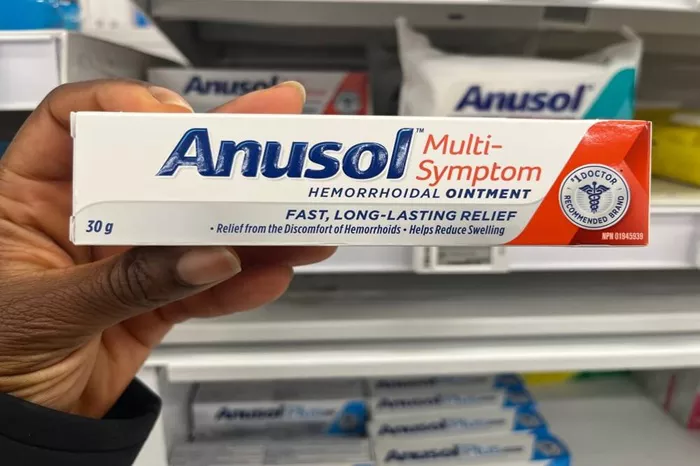Puffy eyes can be a common concern for many people. They can result from various factors, including lack of sleep, allergies, stress, and even diet. The appearance of puffiness around the eyes can affect one’s overall look and self-esteem. As a result, people often seek remedies to reduce swelling and restore a fresh appearance. One unconventional option that has surfaced in discussions is Anusol, a topical medication typically used for treating hemorrhoids. This article explores whether Anusol can effectively reduce puffy eyes, examining its ingredients, mechanisms, and potential side effects.
Understanding Puffy Eyes
Puffy eyes, medically known as periorbital edema, refer to the swelling around the eyes. This condition can affect people of all ages and can stem from numerous causes. Common factors include:
Lack of Sleep: Sleep deprivation can lead to fluid retention, causing puffiness.
Allergies: Allergic reactions can trigger inflammation, resulting in swollen eyes.
Diet: High salt intake can cause the body to retain water, leading to puffiness.
Age: As people age, skin loses elasticity, and fat may accumulate around the eyes.
Crying: Tears can cause temporary swelling due to fluid accumulation.
Understanding the underlying causes of puffy eyes is crucial in selecting the right treatment.
What is Anusol?
Anusol is a brand of medication used to treat hemorrhoids. It typically contains active ingredients like hydrocortisone, zinc oxide, and local anesthetics. Each of these components serves a specific purpose:
Hydrocortisone: A corticosteroid that reduces inflammation and itching.
Zinc Oxide: A skin protectant that helps to soothe irritated skin and promote healing.
Local Anesthetics: Ingredients that numb the area and reduce pain.
These components make Anusol effective for its intended use. However, they also lead some to wonder if these properties could be beneficial for puffy eyes.
How Anusol Works
Anusol works by targeting inflammation and irritation. When applied to the affected area, the hydrocortisone in Anusol reduces inflammation. This can potentially minimize swelling and redness associated with puffy eyes.
Mechanism of Action
Anti-inflammatory Properties: The hydrocortisone in Anusol decreases the immune response, thereby reducing swelling.
Skin Barrier Protection: Zinc oxide forms a barrier on the skin, protecting it from further irritation.
Numbing Effect: Local anesthetics provide temporary relief from discomfort, which can be helpful if puffiness is accompanied by pain.
See also: How to get rid of puffy eyes with ice?
Is Anusol Safe for Use Around the Eyes?
While Anusol is effective for treating hemorrhoids, its safety for use around the delicate eye area is a point of concern. The skin around the eyes is thin and sensitive, making it susceptible to irritation.
Considerations for Use
Sensitive Skin: Individuals with sensitive skin may experience adverse reactions.
Possible Irritation: The local anesthetics and other ingredients could cause irritation, redness, or burning.
Consultation: It is always recommended to consult a healthcare professional before applying any non-prescribed medication to the face, particularly around the eyes.
Evidence Supporting Anusol for Puffy Eyes
Currently, there is limited scientific evidence specifically addressing the use of Anusol for reducing puffy eyes. Most claims are anecdotal and based on individual experiences. However, some individuals have reported positive outcomes.
Anecdotal Evidence
User Testimonials: Many users have shared their experiences on forums and social media, claiming that Anusol effectively reduces puffiness.
DIY Remedies: Some beauty enthusiasts promote Anusol as a quick fix for tired eyes, leading to its popularity.
Lack of Clinical Studies
Despite anecdotal reports, there is a lack of rigorous clinical studies validating the efficacy of Anusol for puffy eyes. Most dermatologists and medical professionals caution against using it for this purpose due to the potential for irritation and side effects.
Alternative Treatments for Puffy Eyes
If you are considering alternatives to Anusol for reducing puffy eyes, several options exist. Here are some common remedies:
Cold Compress
Using a cold compress can effectively reduce swelling. Cold temperatures constrict blood vessels, which minimizes puffiness.
Cucumber Slices
Cucumbers have soothing properties. Placing cucumber slices on the eyes can help reduce swelling and hydrate the skin.
Tea Bags
Used tea bags, especially green or chamomile, can reduce puffiness. The caffeine constricts blood vessels and can help to decrease swelling.
Eye Creams
Many eye creams contain ingredients specifically designed to combat puffiness. Look for products with caffeine, peptides, or hyaluronic acid.
Hydration and Diet
Staying hydrated and reducing salt intake can significantly help manage and prevent puffy eyes. Drinking plenty of water helps flush out excess sodium and reduces fluid retention.
Potential Side Effects of Anusol
Using Anusol on the face, particularly around the eyes, may lead to several side effects. These can include:
Irritation: Redness, burning, and stinging sensations may occur.
Allergic Reactions: Some individuals may experience allergic reactions, leading to increased swelling or rash.
Skin Thinning: Prolonged use of corticosteroids like hydrocortisone can lead to skin thinning.
Due to these potential side effects, many healthcare professionals recommend avoiding Anusol for cosmetic purposes.
Conclusion
While Anusol is an effective medication for treating hemorrhoids, its use for reducing puffy eyes is not well-supported by scientific evidence. The potential benefits are mostly anecdotal, and the risks may outweigh any possible advantages. Alternative remedies, such as cold compresses, cucumber slices, and specialized eye creams, offer safer and more effective options for managing puffy eyes.
Before trying any new treatment, especially those not intended for facial use, it is crucial to consult with a healthcare professional. This ensures that you make informed decisions regarding your skin and eye health.
Related topic:
Does Preparation H Reduce Puffy Eyes?
Can Warm Compresses Reduce Puffy Eyes?
Does Cucumber Help With Puffy Eyes?


